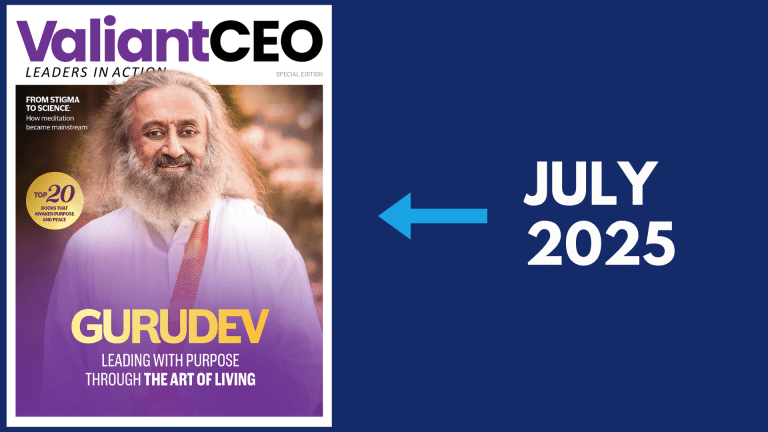Andrew Boeckman has built a dynamic career in operations management, renowned for his ability to lead with calm and precision across diverse markets. With extensive experience in both U.S. and European business environments, Boeckman has honed a unique skill set that enables him to navigate complex operational challenges with agility and foresight. In this interview, Boeckman shares insights into his professional journey, his approach to leadership, and his perspective on maintaining operational excellence in a global context. Let’s delve into the conversation with Boeckman, exploring his background and the key insights that have shaped his career.
What does a typical day look like for you in operations management, and how do you structure it to ensure clarity and measurable outcomes?
Andrew Boeckman: A typical day starts with reviewing performance dashboards and checking in on team workflows. I carve out time early for deep-focus work—usually process reviews or vendor follow-ups—and leave the middle of the day for coordination meetings. I rely on a structured task system and clear communication touchpoints to track progress. It’s less about doing everything myself and more about making sure people have what they need to move forward.
With your interest in workflow automation and collaboration tools, how do you stay current on new technologies that can improve business operations?
Andrew Boeckman: I follow a few niche newsletters and product updates, and I regularly test new tools in low-stakes environments to see how they perform. I’m particularly drawn to tools that quietly enhance process visibility or reduce redundancy. I also talk to colleagues across functions and geographies to see what’s working for them—sometimes you learn more from a five-minute chat than a formal demo.
Can you describe a time when a last-minute project pivot challenged your plans? How did you navigate it while keeping your team aligned?
Andrew Boeckman: We once had a vendor pull out just days before a key deliverable. It required redistributing responsibilities internally and renegotiating timelines with stakeholders. The key was keeping communication tight and expectations realistic. I simplified our priorities, eliminated low-impact tasks, and made sure the team didn’t lose momentum. It wasn’t seamless, but we delivered on time without compromising quality.
What was the most frustrating or misaligned role you’ve held in your career, and how did that experience shape your leadership style?
Andrew Boeckman: Early in my career, I worked in a role with unclear metrics and minimal accountability. It taught me the value of defining expectations and setting measurable goals. As a leader now, I prioritize clarity and structure, not to micromanage, but to give teams a fair shot at success.
You’ve developed your approach through both U.S. and European markets—what’s one skill you had to teach yourself to effectively operate across such diverse work cultures?
Andrew Boeckman: I had to learn to slow down. In some European settings, consensus and precision were valued over speed. That taught me how to read the room better, pace decisions more thoughtfully, and balance action with patience. It’s a skill I still use daily.
Who have been the most influential mentors or colleagues in helping you grow into a calm and structured leader, and what did they teach you?
Andrew Boeckman: I’ve learned the most from people who lead quietly—those who command respect without raising their voice. One mentor in London showed me how to manage pressure without making it visible to the team. That lesson stuck with me: confidence is quiet, and steadiness builds trust.
Your peers describe you as someone who brings calm to complexity—what habits or mindsets have helped you build that reputation?
Andrew Boeckman: I prepare thoroughly and don’t panic when things go off course. I also separate urgency from importance, which helps me stay level-headed. I think people trust me to lead in those moments because I don’t react impulsively—I assess, communicate, and then act.
What advice would you give to someone pursuing a similar path in operations or project management, especially when it comes to building trust and staying relevant in a global business environment?
Andrew Boeckman: Build your credibility with consistency, not noise. Take notes, follow through, and never underestimate the value of being dependable. Also, stay curious—ask how things work, not just how to get them done. That curiosity keeps you adaptable and builds long-term relevance in any market.
In the next segment, we will explore more of Boeckman’s strategies and insights into efficiently managing diverse teams and projects within the global landscape of operations management.
When launching a new operational initiative—especially across departments or borders—what first steps do you prioritize to ensure a smooth rollout?
Andrew Boeckman: First, I listen. I make sure I understand each department’s priorities and constraints before locking anything in. Then I define success criteria and communication channels early on, which avoids confusion later. Lastly, I test assumptions on a small scale—especially across different time zones or cultures—to make sure the process works before scaling.
What’s the most difficult judgment call you’ve had to make recently in managing cross-functional teams or vendor relationships? Looking back, would you handle it the same way?
Andrew Boeckman: I had to push back on a long-standing vendor who wasn’t meeting updated compliance standards. It risked disrupting a comfortable working rhythm, but it was necessary for long-term integrity. Looking back, I’d make the same decision, but I might have laid more groundwork sooner to ease the transition for internal stakeholders.
In terms of professional achievements, which projects or initiatives have been most fulfilling to you, and why?
Andrew Boeckman: Leading a team to streamline a multinational supply chain was particularly rewarding. It required not only technical acumen but also cultural sensitivity and strategic foresight. Successfully reducing lead times and operational costs while enhancing supplier relationships was a complex challenge, but seeing the tangible impact on the company’s bottom line was incredibly satisfying.
What recent technological advancements or industry trends do you see as most pivotal for the future of operations management?
Andrew Boeckman: The integration of AI and machine learning into predictive analytics is a game-changer. These technologies transform how we anticipate demand and optimize inventory. Moreover, the push towards sustainability in operations is reshaping how companies approach supply chain management, pushing for eco-friendly processes that align with consumer expectations.
Looking ahead, what are your aspirations within the field of operations management?
Andrew Boeckman: I aim to drive more initiatives that blend technological advancements with sustainable practices. I believe the future belongs to organizations that can innovate responsibly, balancing efficiency with environmental stewardship. My goal is to lead projects that not only enhance operational performance but also contribute positively to the global community.
How do you envision the role of operations management evolving over the next decade, especially in a global context?
Andrew Boeckman: Operations management will increasingly require proficiency in digital tools and data-driven decision-making. Leaders will need to adapt to a remote and distributed workforce while maintaining cohesion and efficiency. Additionally, cross-cultural competence will be critical as global teams become the norm, demanding nuanced communication and leadership skills.
What advice would you offer to those entering the field who aspire to achieve a similar level of expertise and impact?
Andrew Boeckman: Stay curious and adaptable. The field is constantly evolving, and those who thrive are the ones who continually seek knowledge and welcome change. Building a network of diverse professionals can provide insights that enhance your perspective and approach. Most importantly, lead with integrity and a commitment to making a meaningful impact.
In conclusion, Andrew Boeckman’s career in operations management illustrates the importance of strategic foresight, cross-cultural competence, and the integration of technology with sustainability. His insights offer valuable lessons for current and aspiring professionals in the field. As Boeckman continues to explore new frontiers in operations, his leadership and vision are set to drive impactful changes within the industry.






